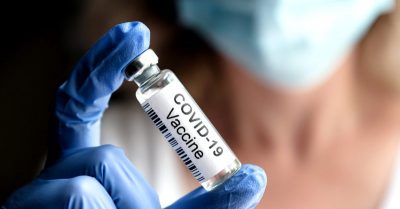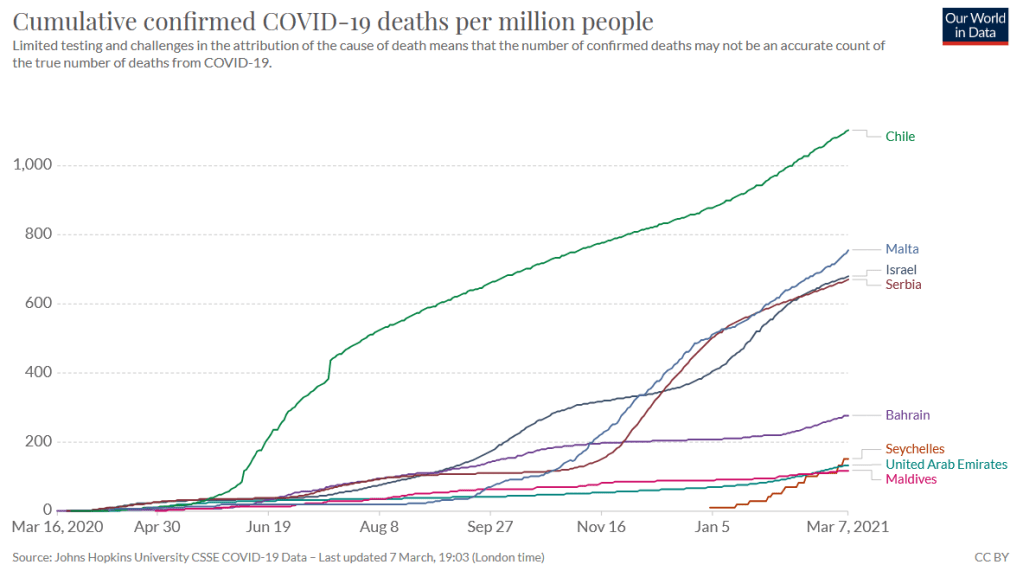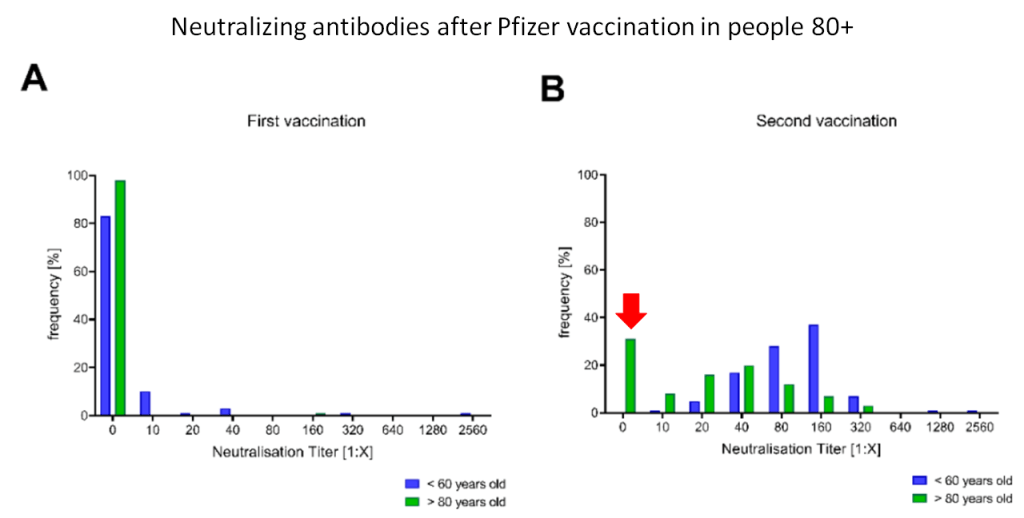The Vaccine Conundrum

Initial data from Israel and Scotland appeared to indicate a very high real-world effectiveness of covid vaccines, even in senior citizens. However, much of this data was heavily adjusted for various factors and was therefore not easy to interpret. Numerous reports of covid outbreaks in care homes even after the second vaccination have raised additional questions about vaccine effectiveness.
To clarify this situation, a German study with 176 participants, published last week as a preprint, measured the age-dependent immune response to the Pfizer vaccine. Somewhat shockingly, the study found that one third of people over the age of 80 developed no neutralizing antibodies at all, and thus were potentially without seroprotection even after the second vaccination (see above).
Some of these elderly people developed non-neutralizing antibodies, but their role in Sars-Cov-2 infection remains unknown: they might help reduce symptoms, but they could also increasesymptoms (so-called antibody-dependent disease enhancement, ADE). The official vaccine trials included hardly any people of the 80+ age group and so didn’t answer this question.
In vaccine science, a reduced immune response in the elderly is known as immunosenescence.
If the reduced protection in the high-risk group gets confirmed, it may explain the somewhat disappointing performance of many covid vaccination pioneers (such as Israel): in most of these countries, covid hospitalizations and deaths have decreased slower than expected, or have even increased, since the beginning of the mass vaccination campaign (see updated figure below).
Meanwhile, documented post-vaccination deaths continue to rise and are now close to 3000 in the US and the EU. Some of these deaths may be unrelated to vaccinations, but in the US, 47% of post-vaccination deaths occurred in people who became ill within 48 hours of being vaccinated, and 31% of deaths occurred within 48 hours of vaccination. The average age was 78, the youngest case was 23.
(Update: The immunological results of the German study have been confirmed by a large-scale Danish study with 30,000 care home residents and 330,000 health care workers. In care home residents, vaccine effectiveness was 0% after the first dose and reached 64% one week after the second dose. In health care workers, vaccine effectiveness was 17% two weeks after the first dose, 46% during the first week after the second dose, and reached 90% one week after the second dose.)
As New York attorney Aaron Siri pointed out in a recent article on StatNews, neither governments nor employers are currently permitted to require covid vaccinations, as covid vaccines have not yet been officially licensed: they only received an “emergency use authorization” in the US and a “conditional marketing authorisation” in the EU. Indeed, the US FDA specifically notes that covid vaccines are “investigational vaccines not licensed for any indication.”

Cumulative covid deaths in global covid vaccination pioneers, excl. the US and UK (OWD)

Neutralizing antibody titers after vaccination, by age group (Source: Mueller et al)
*
Note to readers: please click the share buttons above or below. Forward this article to your email lists. Crosspost on your blog site, internet forums. etc.
Featured image is from Viacheslav Lopatin | Credit: scaliger – stock.adobe.com


